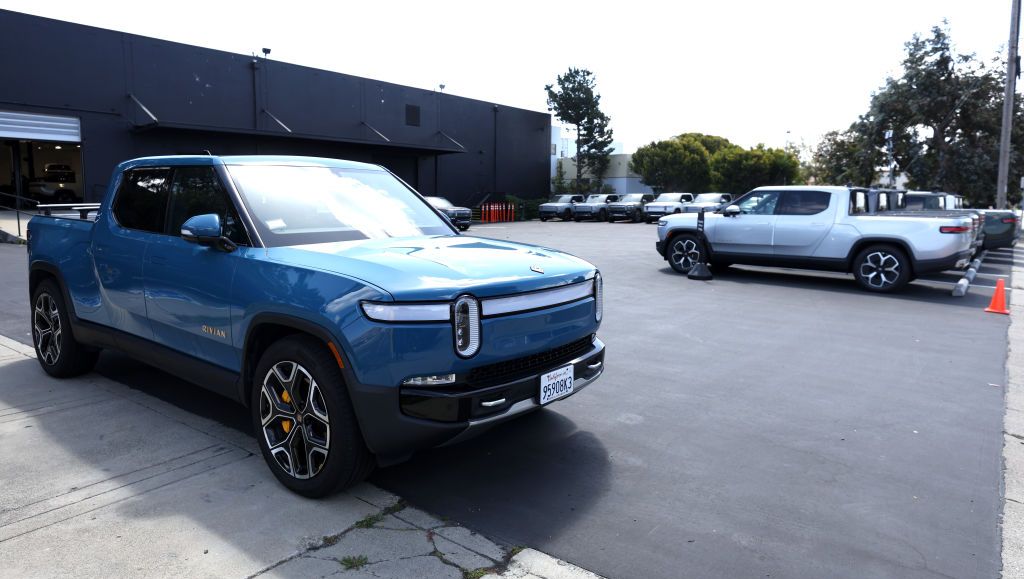Tesla’s proprietary network is opening up, as third-party charging stations continue to struggle with reliability.

JUSTIN SULLIVAN//GETTY IMAGES
- Rivian reveals its vehicles will be able to use Tesla’s Supercharger network starting in spring 2024 via an adapter, and will feature built-in ports starting in 2025.
- The EV startup has also invested in its own, separate Rivian Adventure Network, with plans for 3500 DC fast-chargers exclusively for Rivian owners, as well as 10,000 slower Rivian Waypoints open to all EV users.
- Ford and GM have both announced similar arrangements with Tesla in the past few weeks.
It has been a busy couple of weeks for EV connector standards, with Ford and General Motors announcing plans to allow owners of its EVs to use Tesla’s North American Charging Standard starting in 2024 with an adapter, and as a built-in feature in 2025.
Now, Rivian reveals it is also getting on the NACS bandwagon starting in the spring of 2024, allowing owners of its trucks and SUVs to use the Supercharger network via an adapter. In 2025, the NACS ports will become a standard feature in R1 and the future R2 vehicle lines.
Of the three automakers to have made plans for NACS adoption, Rivian is the only one to have invested in launching its own, albeit much smaller Rivian Adventure Network aimed at providing charging points just to Rivian owners, quite a few of them in state parks.
Of course, state parks may not be where most Rivian owners will be running their daily errands, and for that a greater geographic saturation is needed.
“We’re excited to work with Tesla and to see collaborations like this help advance the world toward carbon neutrality,” said RJ Scaringe, Founder and CEO of Rivian. “The adoption of the North American Charging Standard will enable our existing and future customers to leverage Tesla’s expansive Supercharger network while we continue to build out our Rivian Adventure Network.”
The company still plans to expand its own Adventure Network, which features CCS cables for now. But in the future, we wouldn’t rule out the Adventure Network gaining NACS cables as well.
Tesla’s Supercharger network, which now offers 2000 stations in North America alone with some 12,000 individual charging points and over 5000 stations around the world, has been one of the most lauded aspects of Tesla ownership, as the automaker has spent over a decade building up the exclusive network for the benefit of Tesla drivers.
Now that EVs are starting to go mainstream, Tesla is at last delivering on the promise of opening up its network to other EV makers, just as station reliability issues continue to plague most major CCS networks.



Leave a Reply